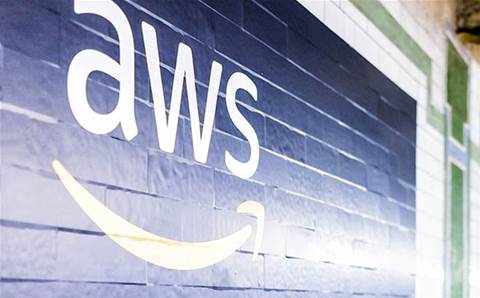As the biggest cloud provider in the world with thousands of channel partners offering a myriad of services, standing out as an Amazon Web Services partner is easier said than done.
One way to stand out from the competition is to attain competencies, which are granted to partners that have demonstrated technical proficiency and proven customer success in specialised solution areas.
Some partners would aim for multiple competencies depending on their service offerings to stand out even further.
Melbourne-based base2Services and Brisbane-based Itoc are two such partners, both recently granted as the first Australian partners to be granted the AWS Software-as-a-Service (SaaS) Competency status, on top of their other competencies.
CRN spoke to Itoc CEO Richard Steven and base2Services managing director Arthur Marinis to learn more about their journeys.
How rigorous was the process of getting the SaaS competency?
Marinis: “It starts off with a simple invitation from AWS, but everything else beyond that is a lot harder. It involved about three to four months worth of effort, and it’s really about proving your capabilities and showing examples of that. When you get that independent audit, it’s quite critical that you’ve got you facts in front of you and you can easily show them.”
Richard: ”We’ve had to have had a real depth of industry experience and be able to demonstrate that, so it was a lot of work to pull out the documentations, to hold the interviews and the audits, as well as a dedicated web page. There’s a whole boatload of work - it was weeks of work to pull it all together. If you didn’t have that capability and depth in your business, it wouldn’t be possible to fake it.”
What are some of your SaaS offerings that helped you secure the competency?
Richard: “We did a lot of work in the financial services space, including a couple of neo-banks, fintechs, payment-related companies, and the services we provide is very much around taking customers on that journey. We build our foundation environment, help their architects deploy their products and services and manage it for them. We’re helping with the heavy lifting, the security and compliance for these companies, as well as our data and engineering practices as well.”
Marinis: “We work with a customer’s software design and infrastructure, so it’s very much about understanding their strategy and targets. For us the competency was around the design focus and not much into the development side. One example is our work with payroll and accounting software vendor Attache Software, who went from a very heavy ISV to a SaaS company within a two-year process.”
As one of only two Aussie partners with the competency, how much of an advantage does it present against the competition?
Marinis: “There’s definitely an advantage especially in the go-to-market as we can show our capabilities quite comfortably. There’s also a certain amount of respect from Amazon and it opens more opportunities.”
Richard: “The biggest benefit for us is being able to deliver better for customers. Customers are going to go to Amazon and they are going to be seeing who are the tried and tested partners in the SaaS space. It also helps that we have other competencies as well and our track record would give customers faith that we could take on bigger and more complex projects and deliver time after time.”
What advice can you give other channel partners who are aspiring to get their first (or next) AWS competency?
Marinis: “The truth of the matter is, you’ve got to build experience and develop best practice. You’d have to need a couple of years up your sleeve before Amazon even considers granting a competency. There is a lot of effort and commitment involved - for example when we pursued the DevOps Competency, we had five people working on over a period of six months to make sure we had it well-documented.”
Richard: “It's quite hard, because I don't think anybody ever starts a business to say, ‘I'm going to go and get on with some competency’. I think people would start a business to say ‘I'm really passionate about an opportunity in a particular industry’, or it might be an industry they previously worked in and where they can really add some value to the industry.
“To get a competency, you have to have the track record of having real world examples of solutions and a proper business that’s got depth and substance. So I'd say the competencies are definitely something that you should have your eye on as early as possible, but I think they’re probably more as a badge of honor or as a result of the hard work and not the other way around.”





.jpg&h=142&w=230&c=1&s=1)

.png&h=142&w=230&c=1&s=1)





.jpg&w=100&c=1&s=0)








_(1).jpg&q=95&h=298&w=480&c=1&s=1)


